Six new UCT fellows announced
16 October 2015 | Story by Newsroom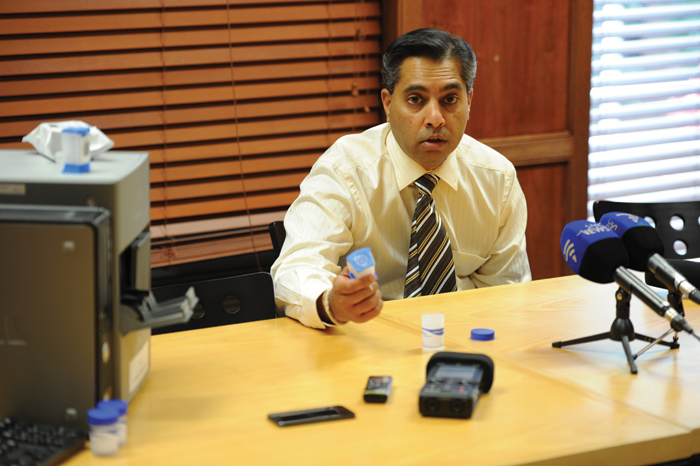
At a ceremony on Tuesday 13 October, UCT announced the names of six new fellows – permanent academic staff who are being recognised by UCT Council for distinguished academic work.
Prof Keertan Dheda
Division of Pulmonology
Dheda's main research interest is the study of multi-drug resistant pulmonary infections including TB. His work has enabled more rapid diagnosis of drug-resistant TB, avoids redundant and expensive drugs, and has found ways in which survival of patients with drug-resistant TB can be improved. It has also defined when therapy should be withdrawn in destitute patients and how healthcare workers should be optimally diagnosed. Dheda is currently evaluating a new treatment regimen for drug-resistant TB.
- Prof Dheda outlined the challenges facing the medical fraternity when trying to diagnose a centuries-old foe – tuberculosis – in a 2014 Café Scientifique talk. Read the write-up.
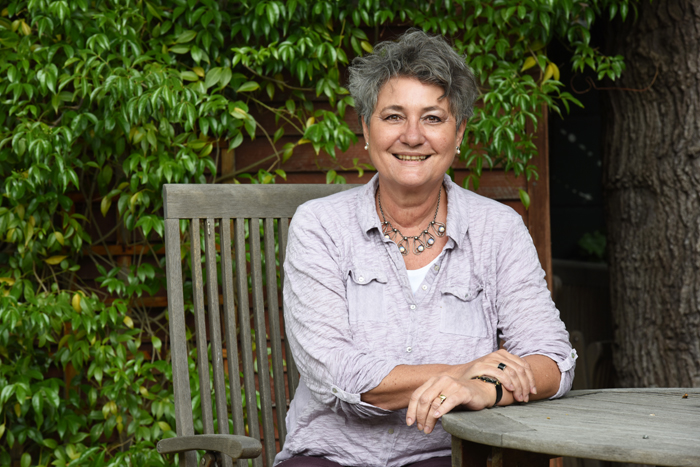 Prof Renée Kraan-Korteweg
Prof Renée Kraan-Korteweg
Prof Renée Kraan-Korteweg
Department of Astronomy
Kraan-Korteweg joined UCT in 2005 as the incoming Chair of Astronomy. Following a decade under her scientific leadership, the astronomy department has been transformed from a small academic department into a large and vibrant community of multi-wavelength astronomers – including four A-rated researchers and two SARChI chairs – who are leading large international scientific projects on world-class facilities such as SALT (the Southern African Large Telescope) and MeerKAT (the precursor to the SKA radio telescope).
- Read Prof Kraan-Korteweg's insights on the importance of homegrown science on the continent.
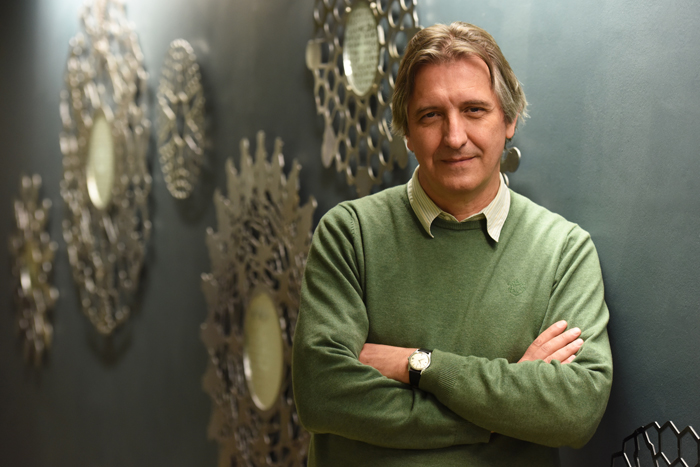 Prof Gary Maartens
Prof Gary Maartens
Prof Gary Maartens
Division of Clinical Pharmacology
Maartens is recognised for having made important original scientific contributions in four areas of clinical research in the fields of HIV and TB. These cover optimum methods of diagnosing HIV-associated TB, co-treatment of patients with HIV and TB, adherence to anti-retroviral therapy, and a randomised trial to prevent TB in people with HIV.
Watch Prof Maartens being interviewed about infectious diseases – a Higher Education Today segment produced as part of the UCT's outreach video training programme Stepping Stone.
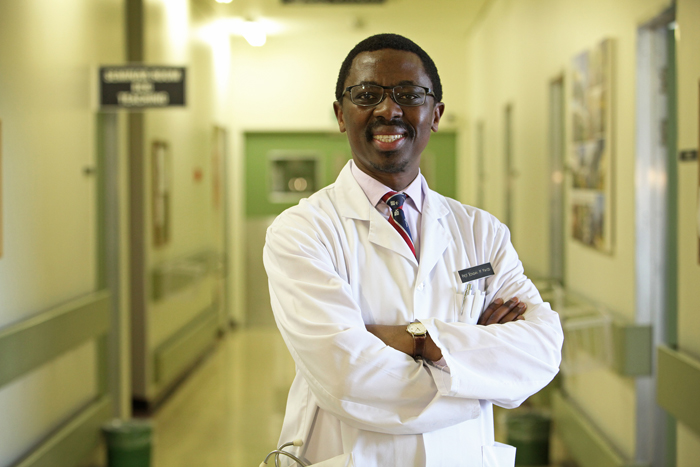 Prof Bongani Mayosi
Prof Bongani Mayosi
Prof Bongani Mayosi
Department of Medicine
Mayosi is recognised for his significant contribution to knowledge in the field of poverty-related heart diseases and genetics of cardiomyopathy and fibrosis. He assembled the Investigation of the Management of Pericarditis (IMPI) research programme to study the clinical, immunological, and biochemical features of TB pericarditis.
- Listen to Prof Mayosi describe the unexpected findings of the first large-scale, multi-country study into the effectiveness of steroids in treating tuberculosis pericarditis – or read the interview.
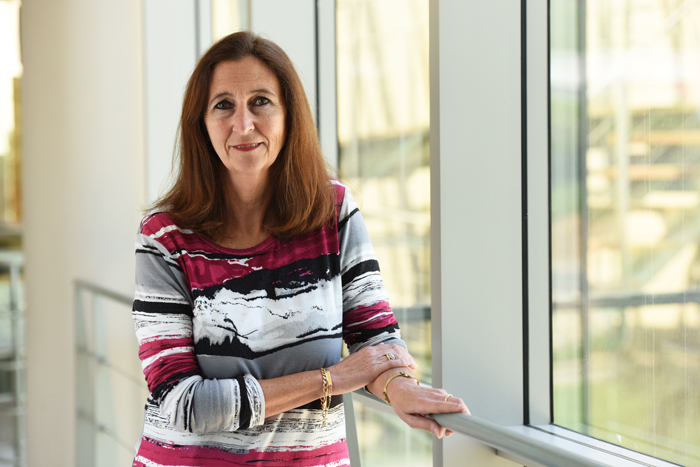 Prof Valerie Mizrahi
Prof Valerie Mizrahi
Prof Valerie Mizrahi
Institute of Infectious Disease and Molecular Medicine, and Department of Pathology
Mizrahi is an international leader in the field of TB research and has focused on studying aspects of the physiology and metabolism of Mycobacterium tuberculosis of relevance to TB drug resistance, efficacy and discovery, and to mycobacterial persistence. She is best known for her work on elucidating mechanisms of metabolic and physiological adaptation of M. tuberculosis to conditions encountered during host infection.
- Watch a video interview with Prof Mizrahi from when she was first appointed director of the Institute of Infectious Disease and Molecular Medicine – or read the interview.
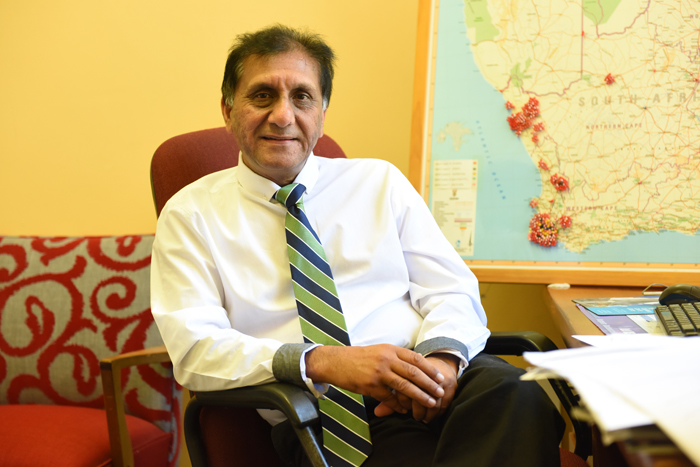 Prof Raj Ramesar
Prof Raj Ramesar
Prof Raj Ramesar
UCT/MRC Human Genetics Research Unit, Division of Human Genetics, Departments of Pathology and Medicine
Ramesar is a world-renowned human geneticist whose research focuses on disease susceptibility in African populations, progressing from the commonly recognised inherited diseases, to those that are more complex yet more common and relevant to our large burden of disease. Having engaged with the families on the West Coast, where a hereditary form of cancer was a major concern, he focused his research on identifying the genetic predisposing factor that leads to the disease, and has translated this research for predictive testing and surveillance of those at highest risk for developing the disease.
- Read Prof Ramesar's thoughts on why Southern Africa may be the best place on Earth for health science research.
At the same event, the College of Fellows also celebrated six young researchers for their work, namely:
- Dr Arjun Amar from the Percy FitzPatrick Institute of African Ornithology
(whose research into pied crows was recently profiled in this fascinating but terrifying GroundUp article: “Where the sheep have no eyes”) - Dr Megan Becker from the Centre for Minerals Research (who spoke to Monday Monthly recently about one of the clever machines and canny robots in the Faculty of Engineering & the Built Environment)
- Dr Johann Diener from the Department of Geological Sciences (who supervises another piece of interesting equipment at UCT, this time in the Faculty of Science: an electron microprobe)
- Dr Tolu Oni from the Division of Public Health and Family Medicine (UCT's Next Einstein Forum fellow who recently paired artists, authors and academics together for the 2nd SAYAS symposium on science and society in Africa)
- Dr Jonathan Peter from the Division of Clinical Immunology (who just returned to UCT after completing a two-year fellowship in clinical and laboratory TB immunology at the John Radcliffe Hospital and Jenner Institute)
- Dr Adam West from the Department of Biological Sciences (when cycads were stolen from Kirstenbosch late last year, it was Adam West who explained to us why these ancient plants are rarer than rhino and just as prized by poachers)
Images supplied.
 This work is licensed under a Creative Commons Attribution-NoDerivatives 4.0 International License.
This work is licensed under a Creative Commons Attribution-NoDerivatives 4.0 International License.
Please view the republishing articles page for more information.










